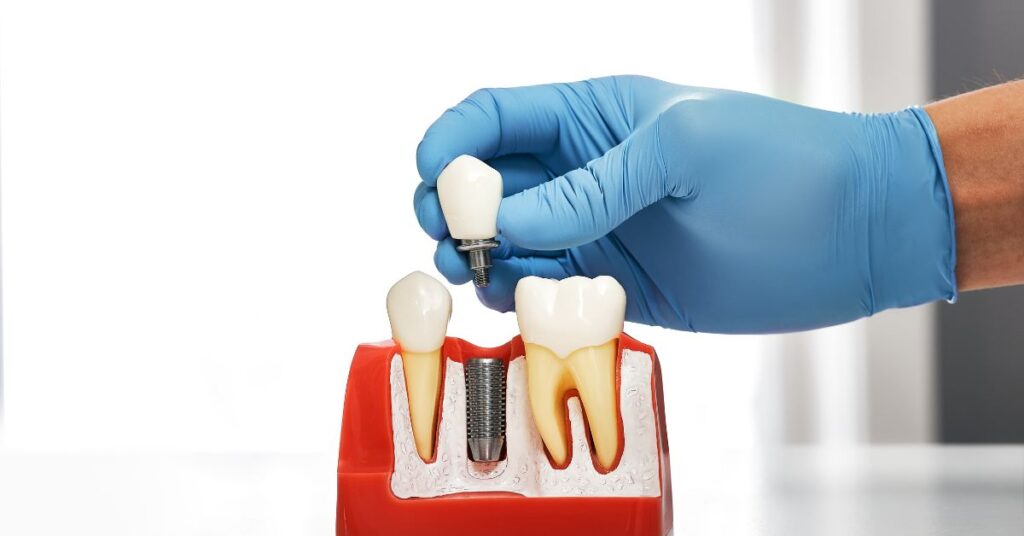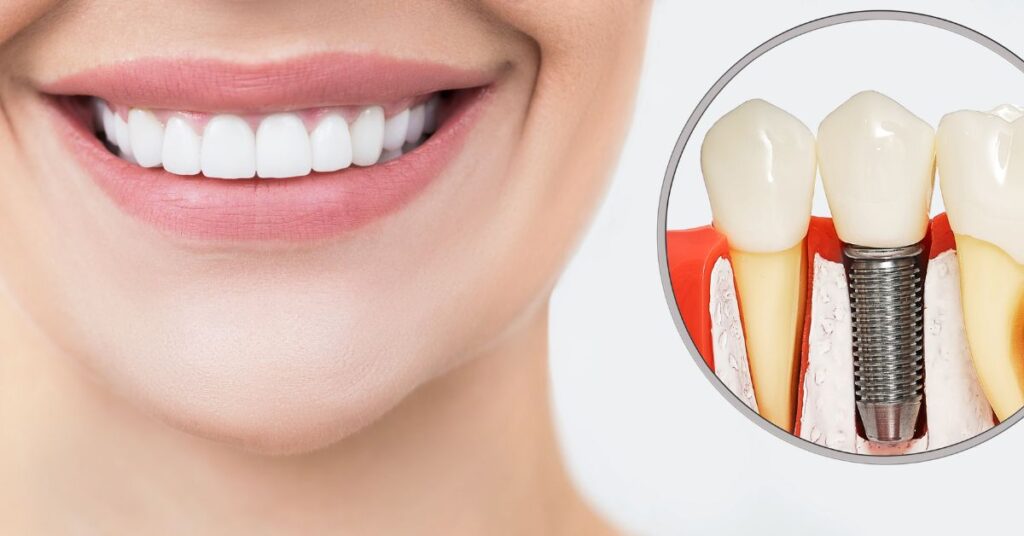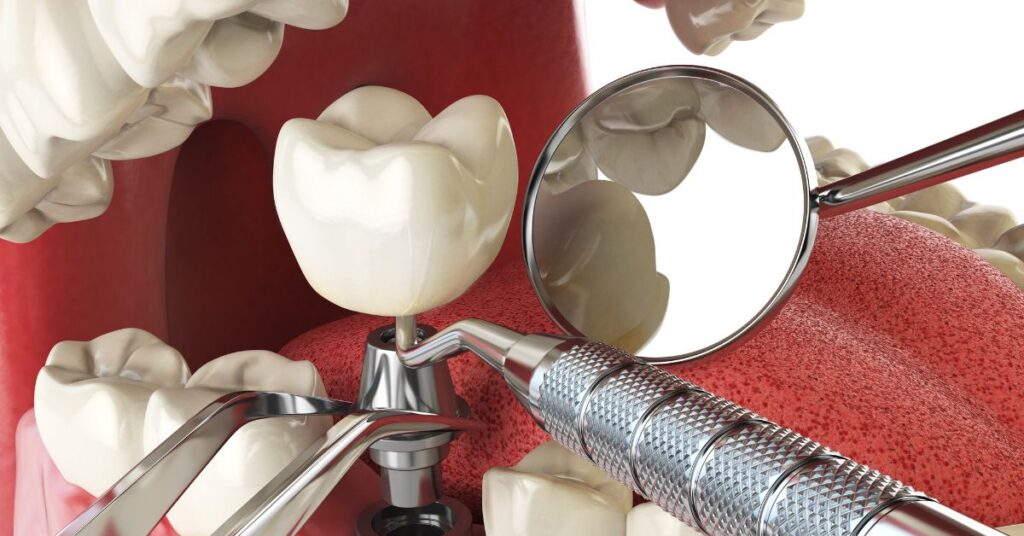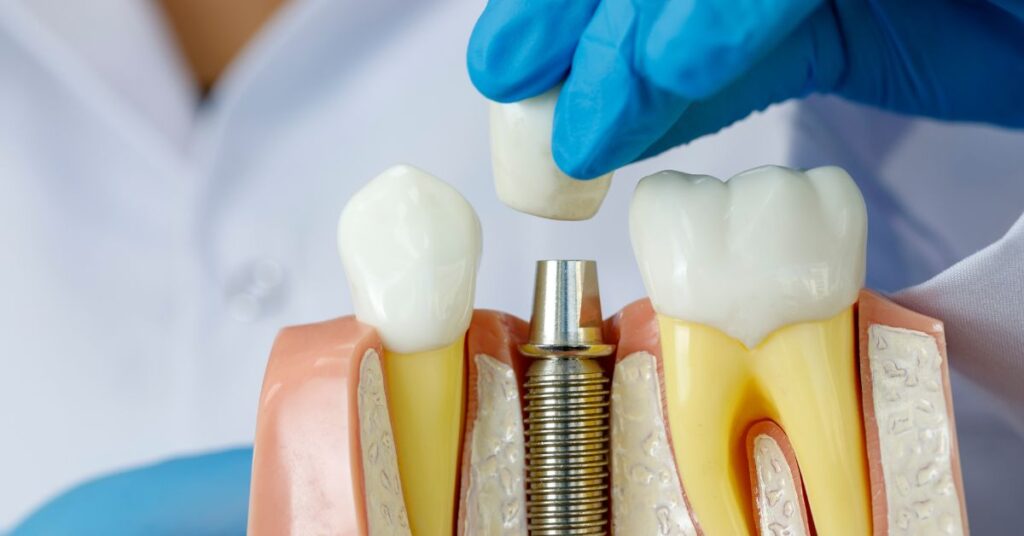
Dental Implants: Revolutionizing Modern Dentistry
Understanding Dental Implants
Dental implants are artificial tooth roots made of titanium that are surgically placed into the jawbone to support dental restorations, such as crowns, bridges, or dentures. They offer a permanent and natural-looking solution for replacing missing teeth.
The Rising Popularity of Dental Implants
Over the years, dental implants have gained immense popularity due to their high success rate and long-term benefits. They have become the go-to choice for restoring smiles and improving oral health for millions of people worldwide.
The Dental Implant Procedure

Preparing for Dental Implants
Before the actual implant procedure, the dentist conducts a thorough examination, which may include X-rays and CT scans, to assess bone density and oral health. Based on the evaluation, a personalized treatment plan is created.
Implant Placement Process
During the implant placement, local anesthesia or sedation options are used to ensure a painless and comfortable experience. The implant is then surgically inserted into the jawbone, where it integrates with the bone over time.
Restoring the Implant with Crowns or Prosthetics
Once the implant has fused with the jawbone (osseointegration), a dental crown, bridge, or denture is attached to the implant. These restorations are carefully crafted to match the patient’s natural teeth, ensuring aesthetics and functionality.
Advantages of Dental Implants

Improved Appearance and Confidence
Dental implants look and feel like natural teeth, enhancing the appearance of the smile. The restoration of missing teeth can boost self-confidence and improve facial contours, giving patients a renewed sense of self-esteem.
Restoring Oral Functionality
With dental implants, patients can enjoy the ability to chew and bite comfortably, just like with their natural teeth. The stability of implants eliminates slippage and instability commonly experienced with traditional dentures.
Durability and Longevity of Dental Implants
Unlike traditional dental restorations, dental implants offer a long-lasting solution for tooth loss. With proper care and maintenance, they can last a lifetime, making them a cost-effective and durable option.
Dental Implants vs. Alternative Solutions

Dental Implants vs. Traditional Dentures
Dental implants provide superior comfort and stability compared to traditional dentures. Unlike dentures, implants do not require messy adhesives and allow for unrestricted eating and speaking.
Dental Implants vs. Dental Bridges
Dental bridges require the support of adjacent teeth, which may lead to the trimming of healthy teeth. Dental implants, on the other hand, preserve the integrity of neighboring teeth and promote overall oral health.
Candidacy and Potential Risks
Ideal Candidates for Dental Implants
Patients with good oral health and adequate bone density are ideal candidates for dental implants. Age is not a limiting factor, as dental implants can benefit patients of all ages seeking tooth restoration.
Potential Risks and Complications
While dental implants have a high success rate, there are potential risks, such as infection and nerve damage. However, with proper preoperative planning and postoperative care, these risks can be minimized.
Dental Implants and Oral Health

Dental Implants and Bone Health
Dental implants stimulate the jawbone, preventing bone loss and resorption that commonly occurs after tooth loss. They play a crucial role in preserving bone density and maintaining facial structure.
Dental Implants and Surrounding Teeth
Dental implants do not negatively impact adjacent teeth, as they stand independently. This protects neighboring teeth from unnecessary stress and allows for better long-term oral health.
Maintaining Dental Implants
Daily Care and Oral Hygiene
Proper oral hygiene, including brushing, flossing, and regular dental check-ups, is essential to ensure the longevity of dental implants. Using interdental brushes and water flossers can help clean hard-to-reach areas around implants.
Common Misconceptions About Dental Implant Maintenance
Clearing misconceptions about implant maintenance is vital. Educating patients on the proper care of dental implants can prevent complications and ensure long-term success.
The Cost of Dental Implants

Factors Affecting Dental Implant Costs
The total cost of dental implants depends on various factors, including the number of implants needed, the type of restorations, and any additional procedures required.
Understanding the Value of Dental Implants
Although dental implants may have a higher upfront cost compared to other restorative options, they offer long-term cost savings due to their durability and minimal need for replacements.
Conclusion
In conclusion, dental implants have revolutionized modern dentistry, providing an effective and permanent solution for tooth loss. Their rising popularity is a testament to their numerous advantages, including improved appearance, restored oral functionality, and long-lasting results. Dental implants offer a remarkable alternative to traditional dentures and dental bridges, preserving oral health and enhancing overall quality of life. As with any dental procedure, it is essential to consult a qualified dental professional to determine candidacy and receive personalized treatment. With proper care and maintenance, dental implants can provide patients with a beautiful and functional smile that lasts a lifetime.


